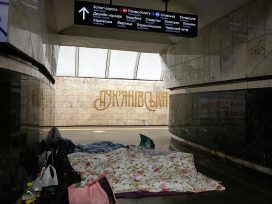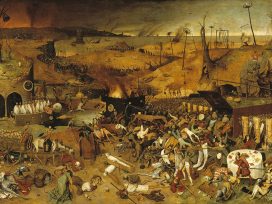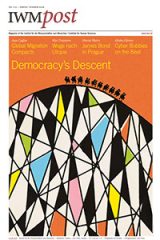

In collaboration with
Institute for Human Sciences
The Institute for Human Sciences / Institut für die Wissenschaften vom Menschen (IWM) is an independent institute for advanced study in the humanities and social sciences. Since its foundation in 1982, it has hosted more than 1500 scholars, journalists and translators from all over the world. Many of the Institute’s Permanent and Visiting Fellows are regular contributors to Eurozine or its focal points Eurasia in Global Dialogue and Ukraine in European Dialogue (see below).
Website: www.iwm.at
Twitter: @IWM_Vienna
Youtube: IWMVienna

Articles

The imprisoned Belarusian opposition politician Maria Kalesnikava has been in a critical condition since the end of November. In October she was awarded an honorary professorship at the University of Salzburg. The philosopher Olga Shparaga, a fellow member of the exiled Coordination Council, pays tribute to a feminist legend.

Missile strikes on Ukrainian cities are targeting civilians. Such punishing retaliation for the loss of Moscow’s vital bridge to Crimea further betrays Putin’s brutal tactics. In times of escalating war crimes, centuries old questions about peace and freedom are ever more urgent. What would be a rational horizon for collective hope over time?

War becomes the twin of communication: the development of media has not only changed how warfare is reported, but also how it’s fought. The working rule of the warriors is to spread strategic information and disinformation at every instant. And media workers are culpable too, for abusing the genre of breaking news reporting to magnetise audiences and advertisers, doing it at a great symbolic cost.

In true Stalinist manner, Russian culture is being weaponized in the war against Ukraine. But instead of cancelling Russian writers, should we read them with a critical eye – just like other European classics?
Focal points

Inspired by a lecture that Clifford Geertz delivered in 1995 at the Institute for Human Sciences in Vienna, this focal point engages with ‘deep diversity’, ‘a sense of dispersion, of particularity, of complexity and of uncenteredness’ rather than unified world order. It follows the launch of a research programme of the same name at the institute in January 2023.

Post-revolutionary Ukrainian society displays a unique mix of hope, enthusiasm, social creativity, collective trauma of war, radicalism and disillusionment. With the Maidan becoming history, the focal point ‘Ukraine in European Dialogue’ explores the new challenges facing the young democracy, its place in Europe, and the lessons it might offer for the future of the European project.
Projects and publications

